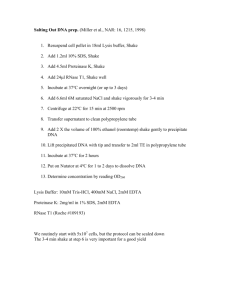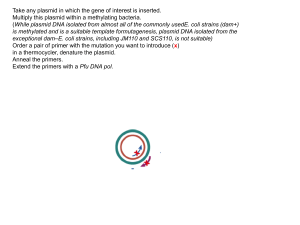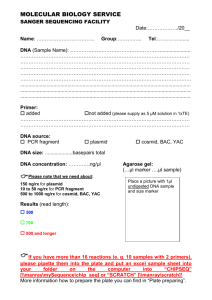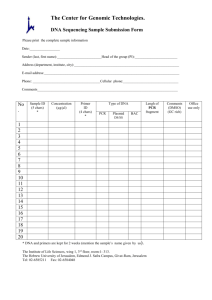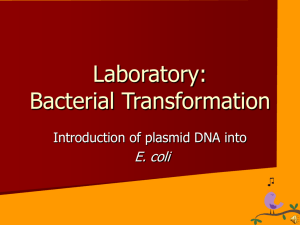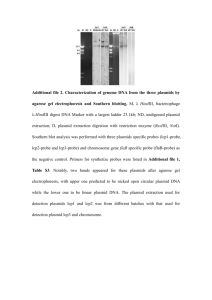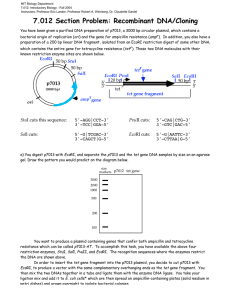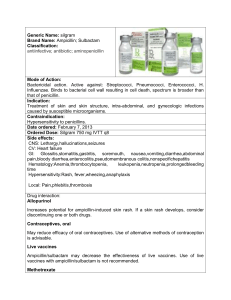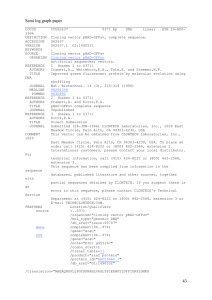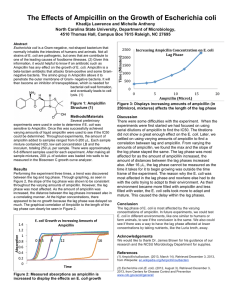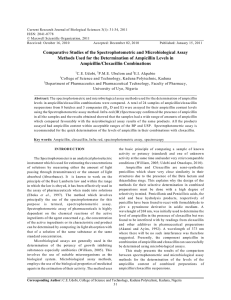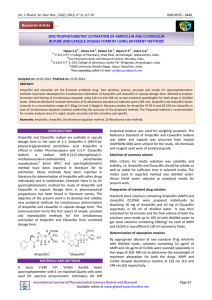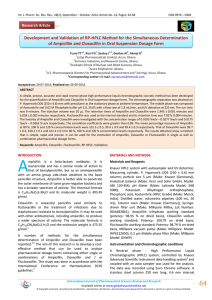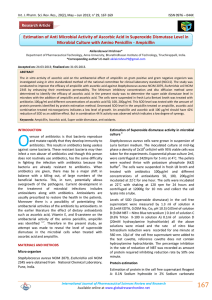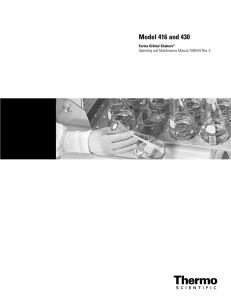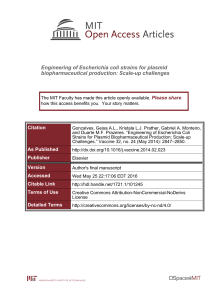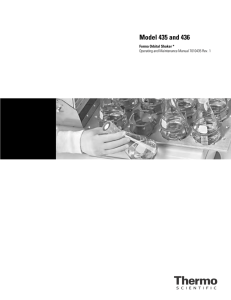Transforming competent cells and isolating plasmid DNA
advertisement
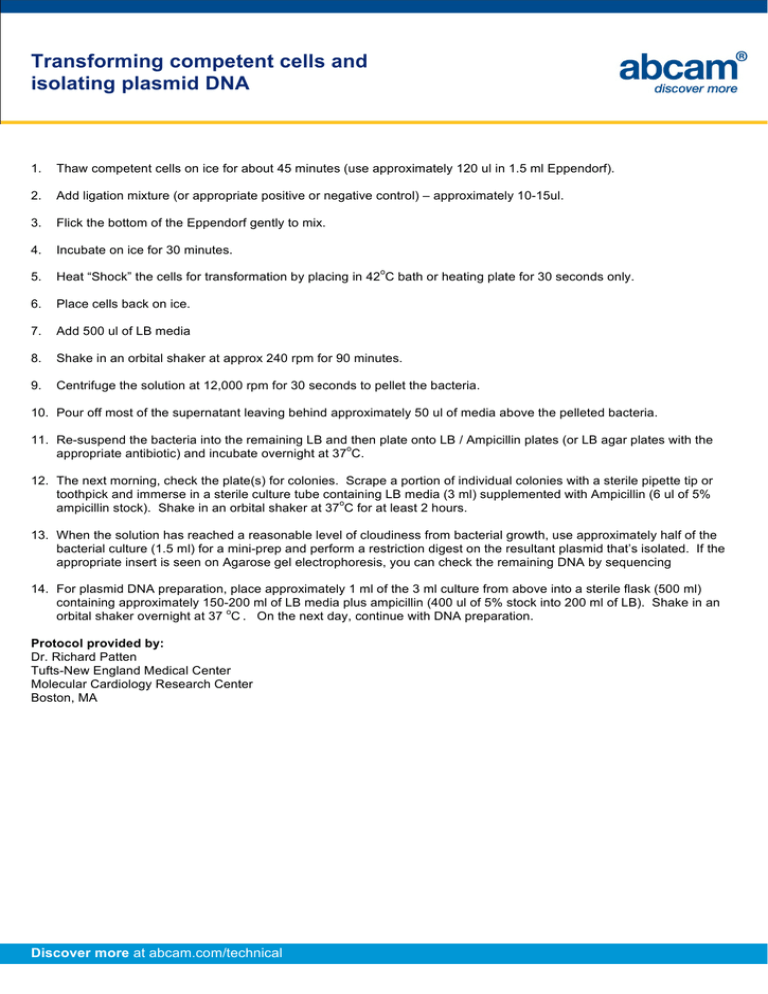
Transforming competent cells and isolating plasmid DNA 1. Thaw competent cells on ice for about 45 minutes (use approximately 120 ul in 1.5 ml Eppendorf). 2. Add ligation mixture (or appropriate positive or negative control) – approximately 10-15ul. 3. Flick the bottom of the Eppendorf gently to mix. 4. Incubate on ice for 30 minutes. 5. Heat “Shock” the cells for transformation by placing in 42 C bath or heating plate for 30 seconds only. 6. Place cells back on ice. 7. Add 500 ul of LB media 8. Shake in an orbital shaker at approx 240 rpm for 90 minutes. 9. Centrifuge the solution at 12,000 rpm for 30 seconds to pellet the bacteria. o 10. Pour off most of the supernatant leaving behind approximately 50 ul of media above the pelleted bacteria. 11. Re-suspend the bacteria into the remaining LB and then plate onto LB / Ampicillin plates (or LB agar plates with the o appropriate antibiotic) and incubate overnight at 37 C. 12. The next morning, check the plate(s) for colonies. Scrape a portion of individual colonies with a sterile pipette tip or toothpick and immerse in a sterile culture tube containing LB media (3 ml) supplemented with Ampicillin (6 ul of 5% o ampicillin stock). Shake in an orbital shaker at 37 C for at least 2 hours. 13. When the solution has reached a reasonable level of cloudiness from bacterial growth, use approximately half of the bacterial culture (1.5 ml) for a mini-prep and perform a restriction digest on the resultant plasmid that’s isolated. If the appropriate insert is seen on Agarose gel electrophoresis, you can check the remaining DNA by sequencing 14. For plasmid DNA preparation, place approximately 1 ml of the 3 ml culture from above into a sterile flask (500 ml) containing approximately 150-200 ml of LB media plus ampicillin (400 ul of 5% stock into 200 ml of LB). Shake in an o orbital shaker overnight at 37 C . On the next day, continue with DNA preparation. Protocol provided by: Dr. Richard Patten Tufts-New England Medical Center Molecular Cardiology Research Center Boston, MA Discover more at abcam.com/technical
